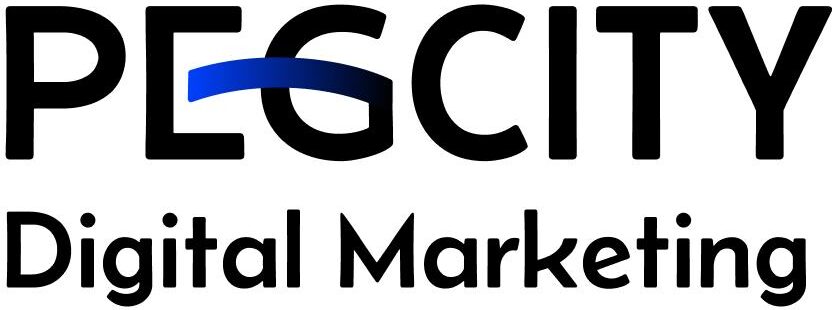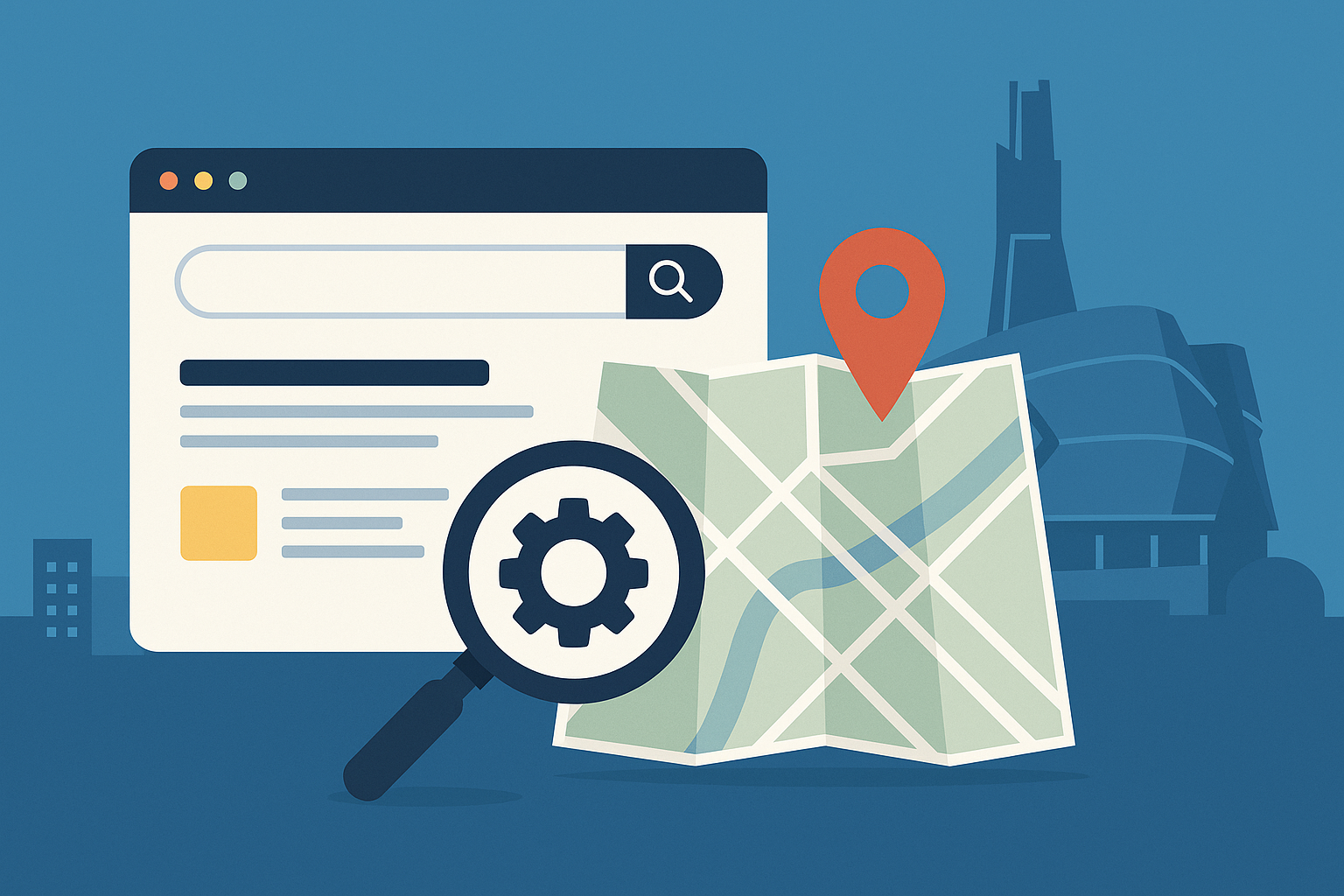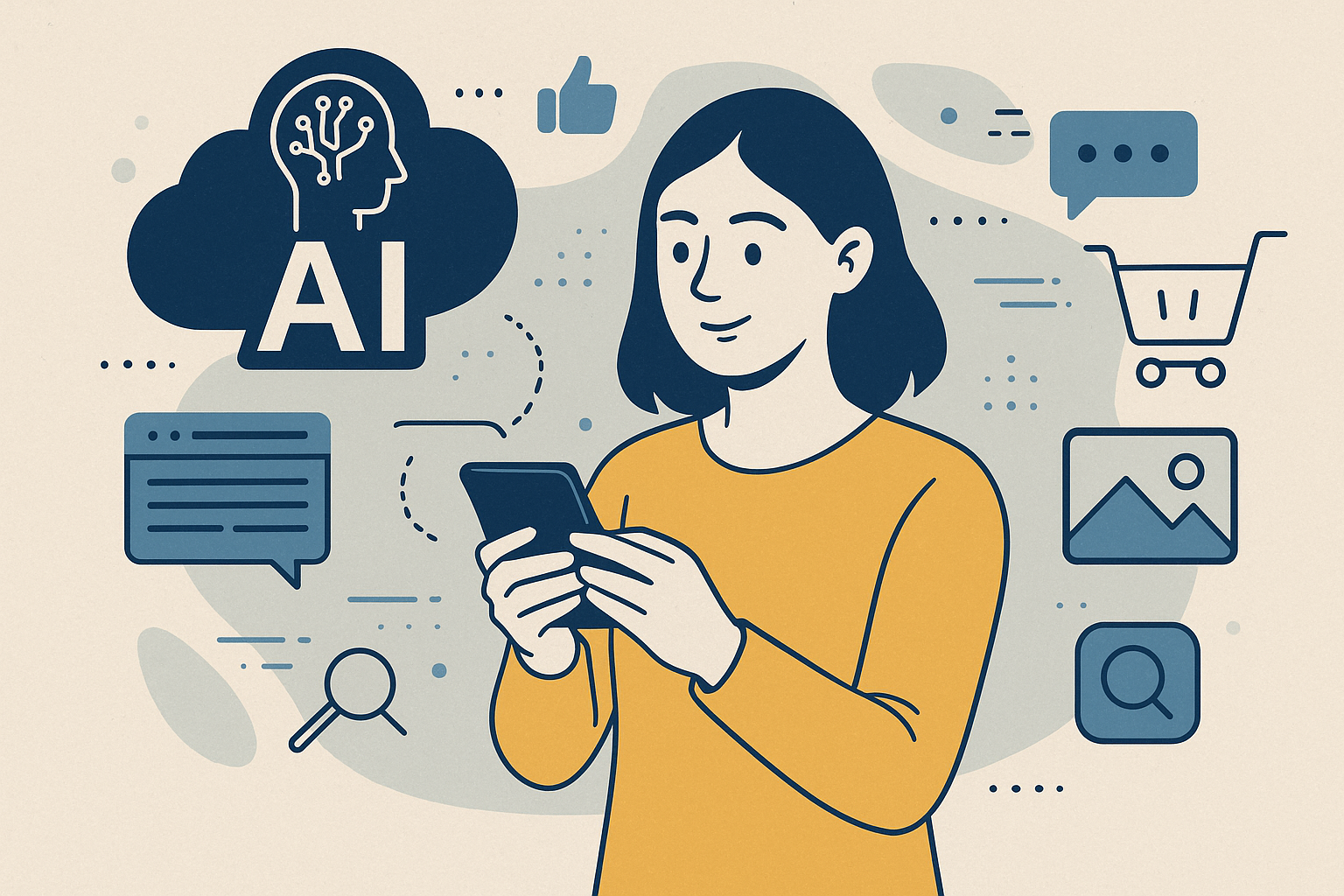Artificial Intelligence (AI) is no longer a futuristic concept—it’s a present-day reality shaping how users interact online. From personalized search results to automated customer support and smart content recommendations, AI technologies are transforming digital experiences. For businesses, especially in the digital marketing space, understanding AI’s impact on user behavior is crucial to staying competitive.
In this article, we’ll explore how AI influences user interactions, decision-making, and expectations, plus how your brand can adapt to these changes for better engagement and conversions.
Keyways AI Is Changing User Behavior
1. Personalization at Scale
AI algorithms power most personalization strategies on platforms like Google, Netflix, Amazon, and Facebook. By analyzing browsing history, demographics, preferences, and even real-time behaviors, AI delivers content that’s tailored for each individual user.
Result:
Users now expect hyper-relevant experiences. If your brand isn’t offering this level of personalization, users may lose interest quickly.
Marketing Takeaway:
Leverage tools like AI-driven CRMs or email marketing platforms that segment and personalize messages based on user behavior.
2. Smarter Search and Discovery
With the rise of AI-powered search engines and voice assistants (like Siri or Alexa), users are moving from traditional keyword searches to more conversational queries. AI understands intent, context, and even emotion, changing how content is ranked and presented.
Result:
Users are relying on smart suggestions, auto-complete, and voice input to discover information quickly.
Marketing Takeaway:
Optimize your content for natural language and semantic search. Use tools like Google’s NLP API to understand how your content is interpreted by AI.
3. Increased Use of Chatbots and Virtual Assistants
AI-powered chatbots are now a standard part of many websites and apps. These bots can handle customer inquiries 24/7, provide instant answers, and even guide users through the buying process.
Result:
Users are becoming more comfortable interacting with automated systems, especially for simple tasks.
Marketing Takeaway:
Implement chatbots with natural language processing (NLP) capabilities to enhance customer experience and reduce drop-offs.
4. Decision-Making Driven by AI Recommendations
Whether it’s choosing a movie, a product, or a restaurant, many decisions are now influenced by AI-generated recommendations. These suggestions are not only convenient but aiso often aligned with user preferences.
Result:
User trust in AI suggestions is growing. People are more likely to follow what AI presents as the “best option.”
Marketing Takeaway:
Ensure your product or content is optimized for AI-driven recommendation engines (think: strong metadata, consistent user reviews, and good UX).
5. Data Privacy and User Trust
While AI offers convenience, it also raises questions about data use and privacy. As users become more aware of how their data is tracked, their behavior shifts—they might use ad blockers, reject cookies, or demand transparency.
Result:
Users are more cautious and selective about which brands they trust with their information.
Marketing Takeaway:
Maintain transparency, get consent, and clearly communicate how user data is used. Respect for privacy builds long-term loyalty.
How to Adapt Your Strategy for AI-Driven Behavior
Audit and optimize content for AI comprehension (structured data, semantic SEO).
Use AI analytics to understand user patterns and predict behaviors.
Create dynamic user journeys that adjust in real time based on AI feedback.
Invest in automation tools that help scale personalization across channels.
Educate your audience about how AI benefits them while protecting their privacy.
Final Thoughts
AI is reshaping the digital landscape and directly influencing how users search, shop, communicate, and make decisions. Understanding AI’s impact on user behavior is not just about keeping up—it’s about leveraging this technology to deliver smarter, faster, and more personalized experiences that resonate with today’s users.
Businesses that adapt early and responsibly will thrive in this evolving ecosystem.
At PegCity Digital Marketing, we specialize in helping businesses harness the power of AI and digital tools to stay ahead of user expectations. From AI-powered SEO strategies and data-driven content marketing to smart automation and website personalization, we tailor our services to meet the evolving needs of your audience. Let us help you grow in a smarter, more efficient way—one click, one connection at a time.
FAQs About AI’s Impact on User Behavior
How does AI affect user search behavior?
AI changes search by focusing on user intent rather than just keywords. Search engines now deliver results based on context, previous searches, and natural language, making search more intuitive and efficient.
Why is personalization important in AI-driven marketing?
AI enables real-time personalization by analyzing user data. Personalized experiences increase engagement, improve conversion rates, and meet the rising expectations of today’s users.
Are chatbots replacing human support?
Chatbots handle simple, repetitive queries efficiently, reducing wait times. However, they complement—not replace—human agents, who are still essential for complex or emotional interactions.
What role does AI play in content recommendations?
AI analyzes user behavior and preferences to recommend content or products most likely to engage them. These recommendations help users discover relevant items faster and increase time spent on platforms.
How can marketers prepare for AI-influenced behavior?
Marketers should use AI tools for analytics, personalization, and automation. They should also focus on SEO strategies that align with natural language processing and semantic search trends.



